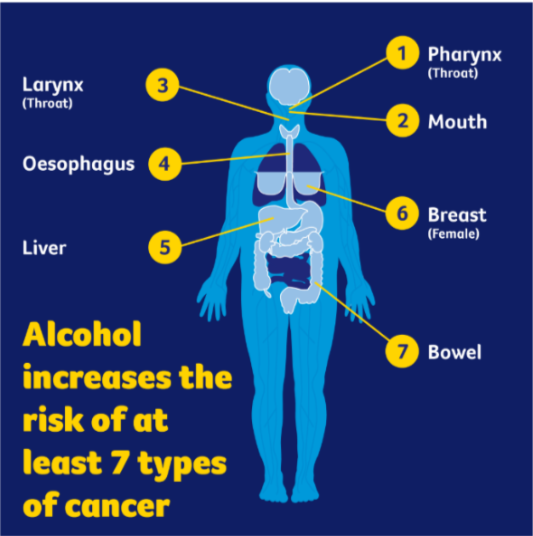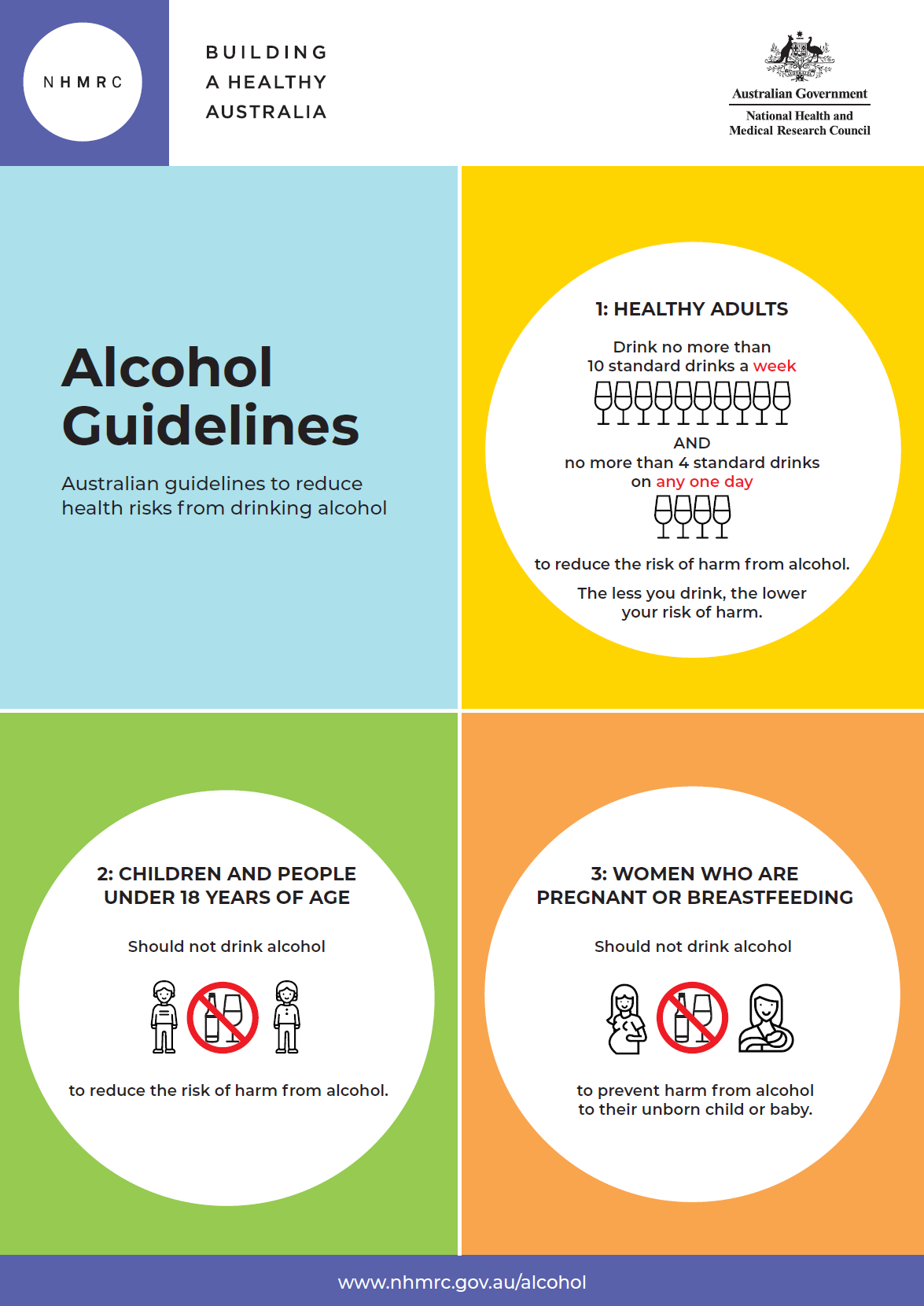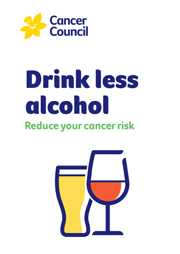- Home
- Cancer Prevention
- Drink less alcohol
- Alcohol and cancer
Alcohol and cancer
Alcohol use is a cause of cancer. Drinking alcohol increases the risk of developing at least seven types of cancer, including mouth, throat, oesophagus, stomach, bowel, liver, and breast cancers. Even small amounts of alcohol increase your risk. The more you drink and the more often you drink, the higher your risk.
The International Agency for Research on Cancer (IARC) has classified alcohol and the chemicals in alcohol (ethanol) as Group 1 carcinogens, meaning they are proven to cause cancer in humans. It is estimated that 5,800 cancers a year in Australia are caused by alcohol.
When it comes to cancer risk, there is no safe level of drinking. You can reduce your cancer risk by drinking less alcohol.

How does alcohol cause cancer?
Alcohol increases cancer risk in several ways. Click below to find out more.
When you drink alcohol, your body breaks down the ethanol into a chemical called acetaldehyde. Acetaldehyde is toxic and can damage your DNA, preventing cells from repairing the damage. This can allow cancerous cells to grow, causing cancers of the bowel, liver, breast, oesophagus, mouth, and throat.
Drinking alcohol can raise hormone levels in your blood, including oestrogen which plays a role in breast cancer development in women. This increase can lead to breast cancer through abnormal development of breast tissue, increased cell growth, and DNA damage. The changes may also affect some trans and gender diverse people.
Drinking alcohol can damage the lining of the mouth and throat, acting as a solvent and making it easier for cells to absorb other carcinogens. For example, when alcohol and tobacco are used together, alcohol increases the absorption of carcinogens from tobacco, leading to a higher risk of cancers of the mouth, throat, and oesophagus.
Being above a healthy weight is also a risk for developing many types of cancers.
Alcoholic drinks represent ’empty kilojoules’ – that is, they are high in energy (kilojoules) but low in nutritional value, especially when added to sugary mixer drinks. If you drink alcohol in addition to your normal dietary intake without reducing the kilojoules you eat, you may gain weight, increasing your risk of 13 types of cancer.
What are the Australian Alcohol Guidelines?
When it comes to cancer, there is no safe level of drinking. Every drink increases your cancer risk.
If you choose to drink alcohol, we recommend you follow the National Health and Medical Research Council guidelines:
- Healthy adults should drink no more than 10 standard drinks a week and no more than four standard drinks on any one day to reduce the risk of alcohol-related disease or injury. The less you drink, the lower your risk of harm from alcohol
- Children and people under 18 years should not drink alcohol to reduce the risk of injury and other harms to health
- To prevent harm from alcohol to their unborn child, women who are pregnant or planning a pregnancy should not drink alcohol. For women who are breastfeeding, not drinking alcohol is safest for their baby.

Can I drink alcohol while undergoing cancer treatment?
It’s important to ask your healthcare team, including your doctor whether it’s safe for you to drink alcohol during or right after chemotherapy or other cancer treatments. They can give you advice based on your specific situation.
There are a number of ways you can improve your wellbeing during and after cancer treatment.

